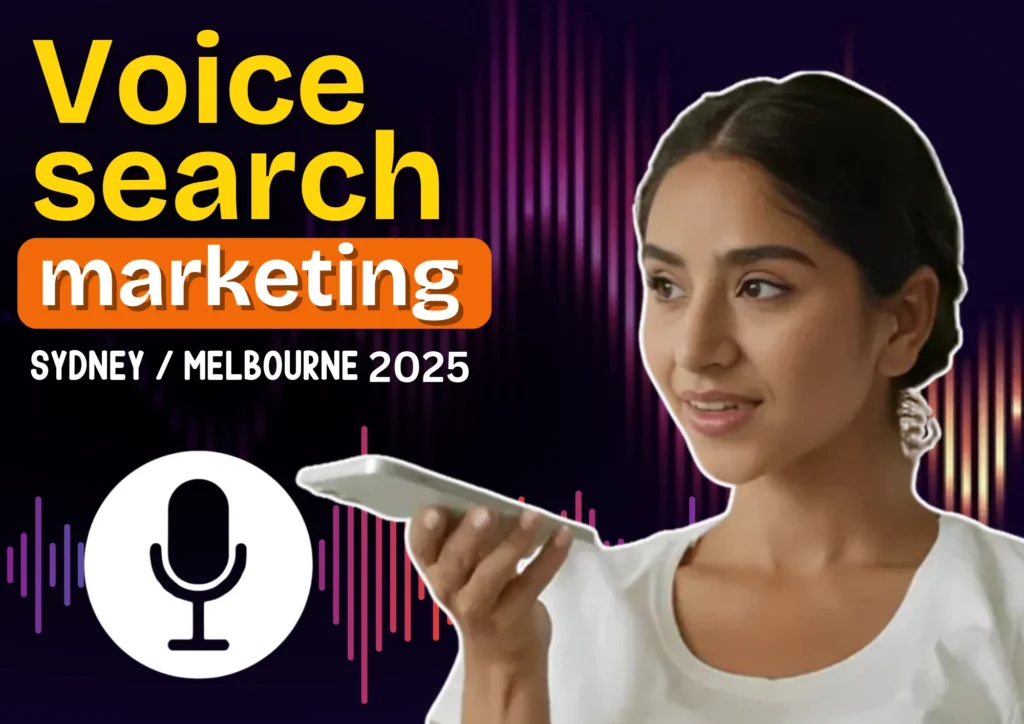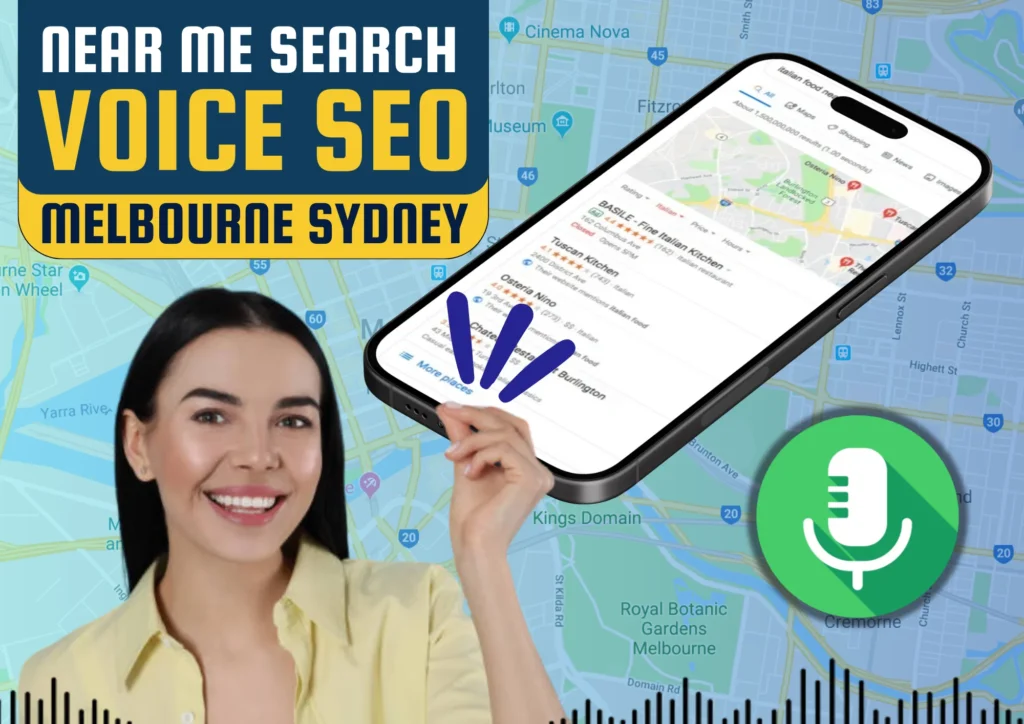Introduction – Why Voice Search is Changing How People Find Local Businesses

In recent years, voice search has transformed how consumers discover products and services. With Siri, Alexa, and Google Assistant widely used across Australia, more people are speaking their queries instead of typing them. For Melbourne and Sydney businesses, this shift is significant: a customer might say, “Best café near me in St Kilda” or “Hair salon open now near Bondi Beach”. Voice search marketing is no longer optional—it’s an essential strategy for businesses aiming to be found in their local area.
What is Voice Search Marketing?
Voice search marketing is the practice of optimising your digital presence so that your business appears in voice assistant queries. Unlike traditional SEO, which focuses on typed keywords and search engine rankings, voice search SEO prioritises conversational language, long-tail keywords, and natural phrasing. For example, instead of targeting the keyword “café Melbourne”, voice search optimisation marketing focuses on queries like “Where can I find a cozy café near me in Melbourne?” This subtle difference is crucial for reaching customers who rely on smart devices for local searches.
The Role of “Near Me” Searches

“Near me” searches are the cornerstone of local voice search marketing. Melbourne and Sydney residents increasingly use phrases like “restaurants near me” or “plumber near me in Bondi”. Local businesses that understand this behaviour can target suburb-specific queries and appear in voice search results. For instance, a café in St Kilda can optimise its website and Google Business Profile to ensure it shows up when someone asks, “Where’s the best café near me?” Similarly, a hair salon in Bondi can leverage voice search SEO to attract nearby clients looking for immediate services.
The Role of “Near Me” Searches
To harness the power of voice search, businesses need to rethink their website strategy. Here’s how:
For example, if you’re wondering “how to optimise my website for voice search in Sydney”, start with FAQ content tailored to typical local questions, include suburb mentions, and make sure your contact information is easy to find.
Google Business Profile & Maps Optimisation

Your Google Business Profile (formerly Google My Business) is a critical tool for voice search marketing. Accurate and complete listings improve your chances of being featured in local search results. Include:
Geo-targeted optimisation ensures that when a user says, “Find a hair salon near me in Melbourne”, your business appears prominently in the results.
Case Examples
Let’s look at practical applications:
- St Kilda Café: By optimising its website with long-tail voice search queries like “best coffee near me in St Kilda”, and maintaining a complete Google Business Profile, the café saw a 35% increase in local walk-ins over three months.
- Bondi Hair Salon: Adding an FAQ section answering questions like “What hair treatments are available near me in Bondi?” and ensuring mobile-friendly pages helped attract clients who booked appointments via voice search.
These examples highlight the tangible benefits of integrating voice search SEO into your digital marketing strategy.
Future Trends
Voice search marketing continues to evolve. AI-powered assistants will become more sophisticated, interpreting complex questions and providing personalized recommendations. Smart home devices, like Google Nest and Amazon Echo, will increase the frequency of voice searches at home. Businesses in Melbourne and Sydney that invest in conversational SEO, structured data, and hyperlocal targeting now will stay ahead of competitors as voice search becomes the dominant mode of discovery.
Conclusion
Voice search marketing is no longer a futuristic concept it’s a present-day necessity. By optimising for conversational keywords, enhancing your Google Business Profile, and targeting “near me” searches, local businesses in Melbourne and Sydney can attract more customers and increase visibility.


